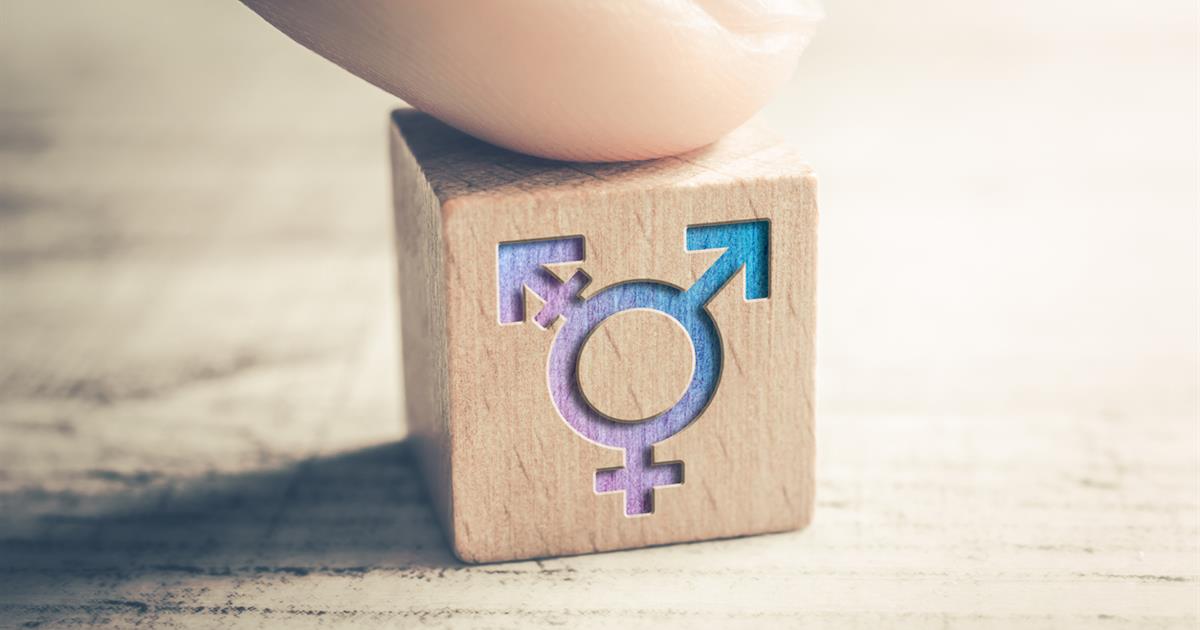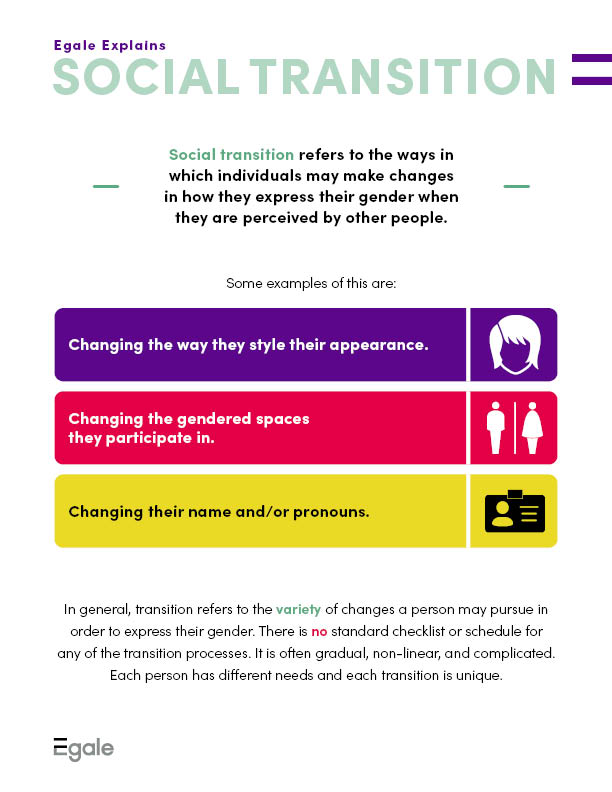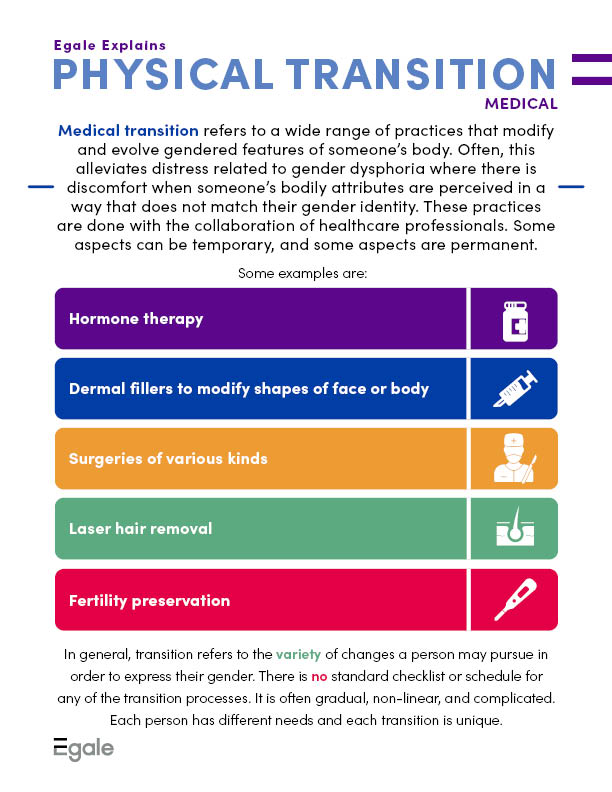
What is Transition?
In general, transition refers to the variety of changes a person may pursue in order to express their gender.
While many voices in popular culture may use the expression “sex change” to describe these processes, the term transition is much more appropriate, preferred and used by members of trans communities.
For some trans individuals, pursuing some form of transition is essential to their overall health and well-being. For other trans individuals, transitioning may be less of a priority, unnecessary, unwanted, or simply inaccessible for a variety of reasons. There is no standard checklist or schedule for any of the transition processes. Transition processes are often gradual, non-linear, and complicated. Each person has different needs, and each transition is unique.
No person should have to conform to cisnormative gender conventions and stereotypes in order to access validation, respect and safety. Supporting a person’s transition as an individual and self-determined process rather than prescriptive, is an important part of adopting a gender affirming approach.
Reasons for transitioning may include wanting to:
Alleviate gender dysphoria
Experience gender euphoria
Avoid being misgendered.
Lower risk of transphobic
discrimination and violence.
Increase ease of accessing social acceptance.
Types of Transition
The potential elements of transition can be broken down into four categories:
social, legal, physical (non-medical), and medical.
Social
Social transition refers to how individuals may make changes in how they express their gender when they are perceived by other people.

Legal
Legal transition refers to the process of updating official identification documents and systems to reflect a chosen name and/or gender markers.

Physical (Non-Medical)
Non-medical physical transition refers to a wide range of practices that modify and evolve gendered features of someone’s body

Medical Physical
Medical transition refers to a wide range of practices that modify and evolve gendered features of someone’s body.

This resource is part of Egale Canada’s work to combat anti-2SLGBTQI hate.
Use Egale’s Rainbow Action Hub to find more resources and tools to combat the rise of anti-2SLGBTQI hate.